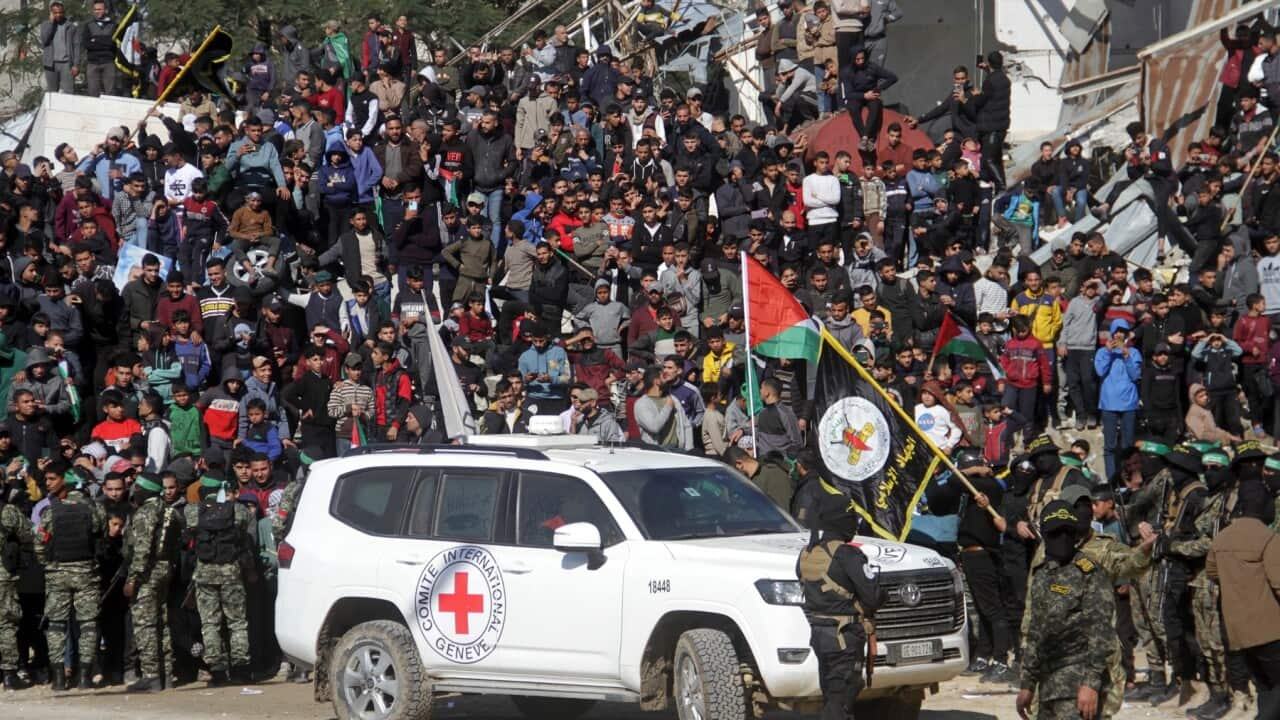TRANSCRIPT
The sea at the village of Mangaluliu [[munga-lilly-oo]] is calm today.
But Mangaluliu Village Chief Mormor Kalsau [[kal-soo]] says that when Vanuatu was hit by three cyclones last year, the water came higher than ever before - about 200 metres uphill to a large hut the village uses as a meeting place.
"I already told the people from the community now the climate is changing so we must try to defend ourselves so do not build your houses near the sea."
For generations the sea has been an abundant source of food in Vanuatu.
Now, retired fisherman James says the men spend all day at sea looking for a catch.
"When we were still on the island this fish that I have in my hand they come here with spear and bow and arrow to catch them but this time very hard you go out to the deep water to catch fish like this but they don’t grow big like the ones before."
The reef starts right at the village beach.
The bright blue tropical water is warm - in fact, so warm that the heat is bleaching the coral white.
Cyclones have also destroyed the coral and owner of snorkelling business Rowena Marine, Max Zacharie, uses mesh underwater to plant coral as he rehabilitates the reef.
"You can start see the little fishes are hanging around the coral which is interesting and that's my dream my vision that in the future there will be lots and lots of fishes and it will help with food security for my community."
Unlike other Pacific Islands that are low lying and at risk of being totally engulfed by rising sea levels, Efate [[ah-far-tay]], in Vanuatu, has many hills.
On the side of a hill in Mangaluliu village, Elizabeth Kalotiti is working in her garden.
She grows food like bananas in the lush tropical garden that she cares for by hand.
Like many people in Vanuatu, she relies on her garden to feed her family.
But the yams she needs to feed her children have been growing too small in her garden this year due to heavy rains.
"I think too many rains and the yam didn't grow good so the ground is wet and the yams didn't grow good and it's show me its small size like this."
As everyday life gets harder for ordinary people in Vanuatu, the minister for Climate Change Ralph Regenvanu [[reggen-var-noo]] is looking for accountability.
Vanuatu is leading the push for the International Court of Justice to consider what obligations countries have to cut emissions and compensate island states like Vanuatu that are being harmed by climate change.
"We all know how we’ve already missed the 1.5 degree target pretty much which we all agreed to as states back in Paris. We know we’re not meeting the financial commitment targets that we all agreed too and so if we are signing up to agreements and not doing what we said we’d do are there any consequences under international law."
Vanuatu expects that the International Court of Justice, or I-C-J, will hand down its advisory opinion on climate change in 2025.
Melbourne University Professor Jackie Peel is an expert in International climate change law.
"This is a hugely significant case this is the first time really that a major international court a world court is considering climate change issues and the responsibilities of countries to address greenhouse gas emissions and the damage there causing to small island countries and communities around the world."
Professor Jackie Peel says the I-C-J case isn’t issuing a binding ruling that will hold a particular country like Australia liable for greenhouse gas emissions.
Instead, Professor Peel says the I-C-J advisory opinion will be able to influence climate change cases around the world including here in Australia.
"Here in Australia we have second highest number of climate cases internationally already, so undoubtedly our environmental groups here will be looking very closely at the ICJ opinion and what it says about the nature of obligations under the Paris agreement requirements to reduce greenhouse gas emissions and that could well open up new claims against the Australian government or companies in Australia over their responsibility for addressing climate change impacts."
Vanuatu's climate change minister Ralph Regenvanu hopes his country can take legal action against companies.
"Depending on what action we see, we may choose for example as a country like Vanuatu to sue some of the big fossil fuel companies in court like actually you know in the Supreme court of Vanuatu and take it on."
Ralph Regenvanu says he's after climate justice .... but that all depends on what advisory opinion is handed down by the I-C-J.
Vanuatu is hoping that after years of being changed by global warming, it will have a chance to change the way the world deals with climate cases in courts.













